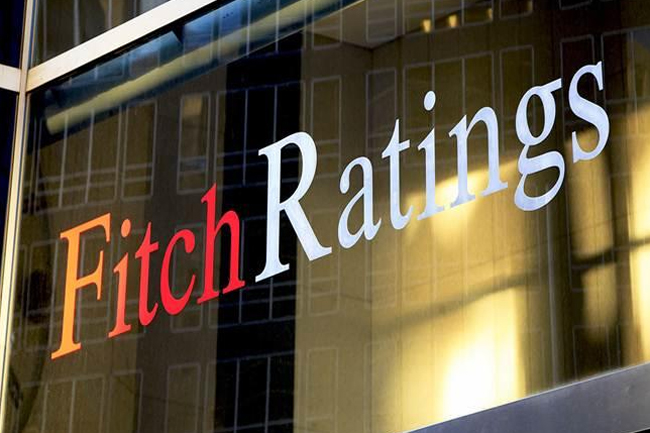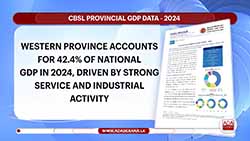Fitch places seven Sri Lankan insurers on Rating Watch Negative
April 23, 2022 05:58 pm
Fitch Ratings has placed the National Insurer Financial Strength (IFS) Ratings of seven Sri Lankan insurers on Rating Watch Negative (RWN).
The insurers are:
-National Insurance Trust Fund Board
-HNB Assurance PLC
-HNB General Insurance Limited
-People’s Insurance PLC
-Continental Insurance Lanka Limited
-Co-operative Insurance Company Limited
-Sanasa General Insurance Company Limited
In a statement, the New York-based credit rating agency said the RWN is driven by heightened near-term downside risks to the insurers’ credit profiles, including elevated investment and liquidity risks, pressure on regulatory capital positions and a weaker financial performance outlook.
The RWN also reflects potential pressure on foreign-currency obligations for some companies due to the stretched foreign-currency liquidity in the local banking system, it read further.
Fitch Ratings said it believes the recent negative rating action on the Sri Lanka sovereign and on various financial institutions underscores the investment risks of domestic insurers, whose investment portfolios are dominated by fixed-income securities issued or guaranteed by the government, deposits and securities issued by local banks, non-bank financial institutions and corporations.
The credit rating agency downgraded Sri Lanka’s sovereign rating to ‘C’, from ‘CC’ and had placed the ratings of several financial institutions on RWN.
Fitch Ratings said the heightened investment risks and earnings pressure could affect insurers’ regulatory capital profiles. A significant deterioration in the credit profiles of financial institutions could lead to lower regulatory risk-based capital (RBC) ratios, as investments will be subject to incremental risk charges according to local regulatory RBC rules, it added.
“We think the weak foreign-currency liquidity in the local banking system could limit insurers’ ability to meet foreign-currency obligations. This includes premium payments to foreign reinsurers and other costs that are typically sourced from overseas. Foreign-currency denominated insurance contract obligations vary by insurer, but tend to be small and limited to certain non-motor classes. Fitch-rated insurers do not have any local- or foreign-currency denominated debt in their capital structures.”
Fitch expects the weak operating environment to affect insurers’ earnings. Growth in motor insurance - the largest contributor to non-life premiums for most insurers - is likely to remain subdued, as Fitch expects the government’s ban on auto imports, imposed in 2020 to control currency depreciation, to continue.
In addition, underwriting profits will be squeezed by rising motor spare-part costs due to currency devaluation, while overall costs will climb with rising inflation, the credit rating agency said further, adding that insurers also have limited ability to reprice policies, given the dent in customers’ disposable incomes.
“Sri Lankan non-life insurers rely on international reinsurers to mitigate risks in their non-motor businesses. Fitch thinks any material changes to reinsurance structures upon renewal amid rising reinsurance costs could undermine insurers’ risk management practices and ability write new business.”
RATING SENSITIVITIES
Factors that could, individually or collectively, lead to negative rating action/downgrade:
The Fitch said it expects to resolve the RWN in the next six months once the impact on insurers’ credit profiles becomes more apparent. Potential triggers that could lead to a downgrade include:
- inability to access foreign- or local-currency assets to meet the insurers’ liabilities
- any restrictions by the government that impedes the insurers’ ability to service foreign- or local-currency obligations
- rising investment and asset risks, including a downgrade of the ratings of financial institutions
- significant liquidity constrains that impede insurers’ ability to service foreign- or local-currency obligations
- sustained drop in regulatory RBC ratios with no plans to rectify the situation
- sustained weakness in financial performance and earnings or risk management practices
- a downgrade of the sovereign rating stemming from a default event.
Factors that could, individually or collectively, lead to positive rating action/upgrade:
-There is limited scope for upward rating action given the RWN.












